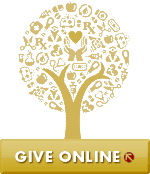Clinical Laboratory Science Training Program: Curriculum
Students participate in lectures and clinical laboratory rotations Monday through Friday, 40 hour per week for 52 weeks, supervised by the teaching coordinators or specialists, section supervisors, bench clinical laboratory scientists, and the program coordinator at all sites. Graduates are awarded a certificate of completion, and are eligible to take the ASCP national certifying examination.
A series of didactic lectures is given in the core subject areas throughout the year by UC Davis Health Pathology staff and faculty in hematology/coagulation, microbiology (bacteriology, parasitology, mycology, virology), urinalysis, clinical chemistry, immunology/serology, and immunohematology. Additional lectures are given in laboratory information systems, molecular pathology, cytogenetics, reproductive endocrinology and infertility, management, progenitor laboratory, laboratory statutes and regulations, principles of quality, lab safety, professional responsibilities, communication skills and education.
Students also participate in clinical laboratory instruction by rotating for specified weeks, and performing routine and specialized test procedures in each laboratory section at UC Davis Health or approved training affiliate sites. Licensed clinical laboratory scientists, teaching coordinator specialists, and section supervisors provide instruction at the clinical sites.
Clinical Laboratory Course Descriptions
CLS 300 Immunohematology
This course includes the introduction of the theory, practical application, technical performance and evaluation of blood bank procedures required for transfusion of blood and blood components. The student will perform patient specimen processing and pre-transfusion testing including blood ABO and Rh typing, antibody screening and antibody identification. The student will learn to select compatible blood types for each blood component and perform necessary pre-transfusion compatibility testing for red blood cell transfusion. The course will include proper component storage, and modifications of components such as thawing plasma or washing red blood cell units. Transfusion therapy practices, blood group system biochemistry, genetics, and serology are stressed. Also emphasized are various quality assurance processes including daily quality control, including reagent quality control, refrigerator/freezer/heat block temperature monitoring, and error reporting as well as the investigation of suspected transfusion reactions.
CLS 310.ABC Clinical Chemistry
This course includes the introduction to the theory, practical application, technical performance and evaluation of clinical chemistry laboratory procedures. Correlation of clinical laboratory data with the diagnosis and treatment of carbohydrate, renal, liver, lipid, protein, enzymes, electrolytes, nitrogen metabolites, inborn errors of metabolism, pancreatic and endocrine disorders is emphasized.
CLS 320.ABC Clinical Hematology
This course integrates theory and application of hematology and hemostasis diagnostic procedures, interpretation, problem solving, and correlation of laboratory findings with disease states. Topics include hematopoiesis, cell morphology, anemia, leukocytes, thrombocytes, myeloproliferative disorders, body fluids, and blood parasites. An overview of hemostasis provides studies in coagulation, bleeding abnormalities, clotting abnormalities, and platelet disorders. Students perform specimen collection and handling, macroscopic and microscopic evaluation of blood and other biological fluids. Results are correlated with both health and disease states.
CLS 330.AB Laboratory Operations
This course provides an introduction to laboratory safety, patient confidentiality (HIPAA), ergonomics, informatics, phlebotomy, instrumentation, and quality Management. The procedure and theory behind instrumentation and measurement of laboratory analytes as well as quality processes are presented. This course also includes the theory, practical application, technical performance and evaluation of procedures used in collecting, handling and processing blood specimens. Human anatomy and physiology, circulatory system, and blood collection procedures including blood collection variables, complications, procedural errors, and legal issues are evaluated. Quality management is also introduced utilizing quality assurance and control of processes to achieve more consistent quality in the laboratory environment.
CLS 340 Toxicology
This course incorporates advanced theory, practical application and evaluation of clinical laboratory procedures. Correlation of clinical laboratory data with the diagnosis and treatment of toxicology disturbances and therapeutic drug monitoring is emphasized. The educational process includes application and correlation through lectures and self-assessments.
CLS 350.ABC Microbiology
This course includes the introduction of the theory, practical application, technical performance and evaluation of procedures for isolation, identification and susceptibility testing of infectious disease organisms in humans. This course includes bacteriology, mycology, parasitology, virology and serology, and emphasizes the correlation of clinical laboratory data with the patient’s diagnosis and treatment.
CLS 360 Immunology/Serology
The purpose of the Immunology course is to provide a basic review of the immune response and its involvement in health and disease. Lectures provide a review of the basic concepts and terminology of immunology including a review of the cells and cytokines of innate and adaptive immunity. The application, evaluation and correlation of laboratory procedures (including agglutination, precipitation, nephelometry, immunodiffusion, immunofixation, electrophoresis, Western blotting, flow cytometry, etc.) are discussed in the context of the diagnosis of various diseases caused by disorders of the immune system, either due to its failure (immunodeficiency), overproduction (immunoproliferative diseases), aberrant action (autoimmunity and allergy) or malignant growth of cellular elements (leukemia/lymphoma). Transplant immunology and the serologic diagnosis of syphilis are also discussed. The course also encompasses diseases of other systems in which immune reactions play a part in the pathogenesis, such as multiple sclerosis, diabetes, and celiac disease. Clinical Immunology is a relatively new and rapidly changing field, troubleshooting and “thinking-out of the box” are encouraged.
CLS 370 Special Chemistry
This course includes the theory, practical application, and evaluation of non-stat testing via automated and manual methods. Testing includes CMIA and EIA immunology principles, HPLC, and ELISA testing methods.
CLS 380 Molecular Pathology
This course includes the theory, practical application, and evaluation of molecular approaches to genetic disorders, infectious diseases and tumor markers. Theory and application of nucleic acid extraction and molecular diagnostic tools, including polymerase chain reaction (PCR), reverse transcription, probe hybridization, fluorescence in situ hybridization (FISH) and microarray technology are addressed. Critical thinking skills are developed in the critical analysis of published articles and interpretation of complex test results with final written assessment at the completion of the clinical rotation.
CLS 400 Student Collaborative Project
This course includes the application, evaluation and correlation of laboratory procedures and the role of the clinical laboratory in the hospital setting. Opportunities for building critical thinking, oral communication, professional behavior, and teamwork skills are provided in this assigned group collaborative project.

